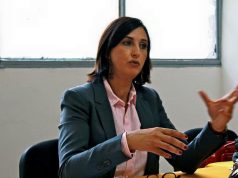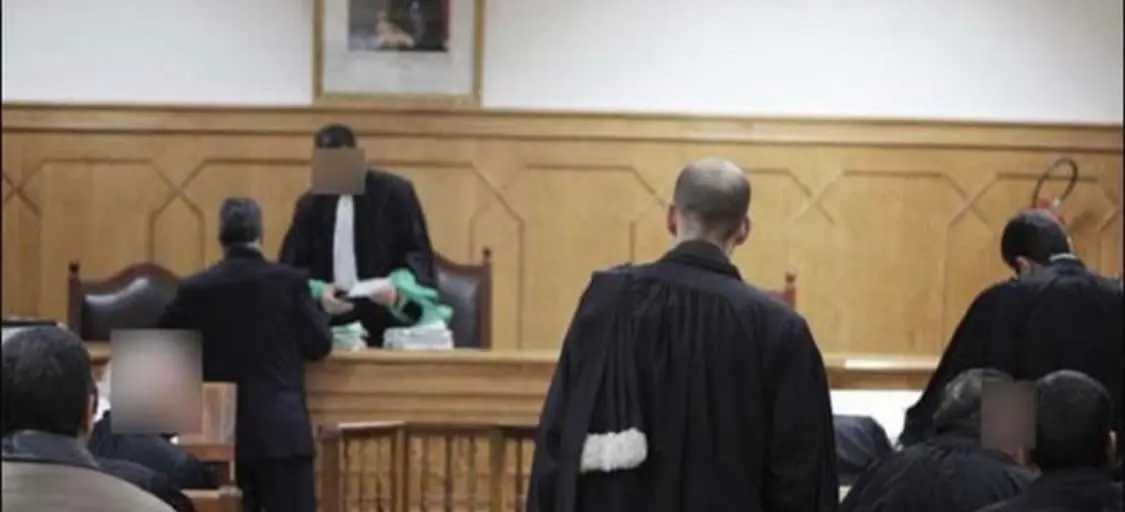[symple_box color=”blue” text_align=”left” width=”100%” float=”none”]
 Nabil Ouchagour is a communication strategist and columnist. He has carried several caps going from Minister advisor to Public relations consultant and institutional relations in a private agency. He also assured the organization and moderation of conferences in many associations. His main interests: MENA/EU/USA relations. He is passionate about intercultural dialogue and tolerance. Recently, he was selected as a leader to take part of the United Nations Alliance of Civilizations fellowship program.[/symple_box]
Nabil Ouchagour is a communication strategist and columnist. He has carried several caps going from Minister advisor to Public relations consultant and institutional relations in a private agency. He also assured the organization and moderation of conferences in many associations. His main interests: MENA/EU/USA relations. He is passionate about intercultural dialogue and tolerance. Recently, he was selected as a leader to take part of the United Nations Alliance of Civilizations fellowship program.[/symple_box]
If there were a slogan, a value to mobilize all Muslims and peoples of North Africa and the Middle East in the coming years, it should be “Let’s free ourselves!”
Following the Arab revolutions, the world discovered the Islamic State, a.k.a Daech.
Syria is suffering one of the greatest tragedies in its history, Egypt has recovered from chaos at the cost of a coup against democracy that will weigh heavily on its future, Lebanon is struggling to maintain its legendary optimism and Libya is at the heart of a storm.
Iraq, where the United States recognizes its failure, has been left alone to face immeasurable damage.
Saudi Arabia does not know what to do; sometimes its interests push it to support the friends of its enemies. Moreover, it has had to make the risky choice of supporting traditional enemies against others, new and more dangerous. It seems there is no room left between two evils
Meanwhile, all eyes are on two countries: Morocco and Tunisia.
Even though Morocco has discovered, not without bitterness, that hundreds of its citizens have joined the ranks of the ISIS terrorist organization, it without doubt represents a model of the most tolerant society in the region.
On the religious front, the country is led by a Commander of the Faithful in the person of the King. The sovereign, traditionally surrounded by a committee of qualified Ulemas, is an authority on religious matters. The country is a reference in the field and has become a sort of hub for many African and European countries, who send their imams to learn how to counteract prevailing extremism.
Tunisia represents a laboratory of democracy in the region for several reasons. From the liberalization, to the lack of natural resources (which explains why Tunisia did without parasites and selfish agents whose interests were others than those of the country concerned, with inappropriate intervention) and the level of education of its population, Tunisia is probably the country that represents the best hope for a future coherent society unifying all its components. However, the advanced age of the recently elected president raises some questions.
Asking the Right Questions
Nonetheless, what the region is currently experiencing is much too complex and multifactorial to be reduced to a problem of democracy, dictators or revolutions.
It is necessary to go back in history to put the different factors into perspective and to contextualize the data.
Whether because of the failure of nation building, the influence of borders drawn by the Sykes–Picot Agreement, the subversive effect of colonization, or the support of the United States for Islamist terrorists (to counteract the influence of the Soviet Union during the Cold War at a time when it did not represent a real threat to the western world), it is evident that the nodal point of the crisis facing the region is focused around religion.
The critical questions that keep coming back are related to the role of religion in society, its place and influence.
Thus, we should ask questions such as: Who needs to be reformed; a religion or believers affiliated with this religion?
Which shapes the other? Is it religion that shapes society, or society according to its stage of development, education and enlightenment that shapes the perception, interpretation and implementation of a religion?
Have religions remained immutable over the centuries?
Have they not mutated depending on the society in which they existed, sometimes influenced by ignorance, sometimes for the sake of a few?
For example, if we meant to dissect the Muslim-majority societies: What is part of the Muslim identity? What is part of the traditions of Muslims, and finally what is specifically related to the religious field?
We should have the courage to ask such questions.
We have a duty to think together about these questions without necessarily arriving at a single answer, but it is imperative to escape the realm of taboo. The fewer prejudices, the more freedom of thought and thus enhancement of the public realm.
Rights and Freedom
The Universal Declaration of Human Rights must be a prerequisite for the citizens of the countries of the region. It is its individual appropriation that will inevitably push governments to adopt and implement it.
At the individual level, the values of freedom should be part of everyday life. So, a Muslim should have the right to convert to another religion or become an atheist without being judged by the law or feeling judged by society.
Indeed, when a religion becomes a choice, the conviction of believers is even stronger; it is a conviction by desire, not by fear.
This will be further reinforced when the freedom to discuss the Koranic texts is granted. What is part of the historical context (and therefore subject to change and adaptation), and what represents the essence of Islam?
Questions also arise concerning the punishments imposed by the laws of some Muslim countries. Other examples are the right not to fast, and the rights of minorities, including homosexuals. Finally, a debate on the division of inheritance between men and women seems inevitable.
The Silent Majority
Of all the components of the Muslim-majority societies, there is one that has not yet expressed its views, the one that attracts the media the least because it is neither part of the extremists nor the victims, but mostly minorities. It is the “silent majority” composed of ordinary men and women, believers who live with a spirit of tolerance of varying degree.
Only this category is able to form a movement that might awaken the collective consciousness. This category, the so-called silent majority, which probably holds the key to a proper balance, must finally become vocal and declare their preferences, choices and opinions.
This will happen at the cost of a total metamorphosis of the social contract, because a reversal of thought toward Freedom requires virtue, commitment and reflection.
The health of our societies now depends highly on the continued commitment of scholars, moderates and humanists. It is the duty of our generation, for citizen engagement, an imperative mission; this is the price of Living Together in a meaningful sense in the Arab World!
Let’s all adopt in advance the concept of human rights at the individual level with one fundamental aim: freedom!
Let’s start with the freedom to think differently and allow others to have the right to different beliefs in all areas, including on the social, political and religious levels.
At this point, we can begin to believe in the virtue of Human Rights as a common value of society.
Then, we will fully live the dawn of this democracy to which we aspire with a serene peaceful Islam, immune from extremism and able to exist in a pluralistic and diverse society.
[symple_box color=”blue” text_align=”left” width=”100%” float=”none”]
 Nabil Ouchagour is a communication strategist and columnist. He has carried several caps going from Minister advisor to Public relations consultant and institutional relations in a private agency. He also assured the organization and moderation of conferences in many associations. His main interests: MENA/EU/USA relations. He is passionate about intercultural dialogue and tolerance. Recently, he was selected as a leader to take part of the United Nations Alliance of Civilizations fellowship program.[/symple_box]
Nabil Ouchagour is a communication strategist and columnist. He has carried several caps going from Minister advisor to Public relations consultant and institutional relations in a private agency. He also assured the organization and moderation of conferences in many associations. His main interests: MENA/EU/USA relations. He is passionate about intercultural dialogue and tolerance. Recently, he was selected as a leader to take part of the United Nations Alliance of Civilizations fellowship program.[/symple_box]






